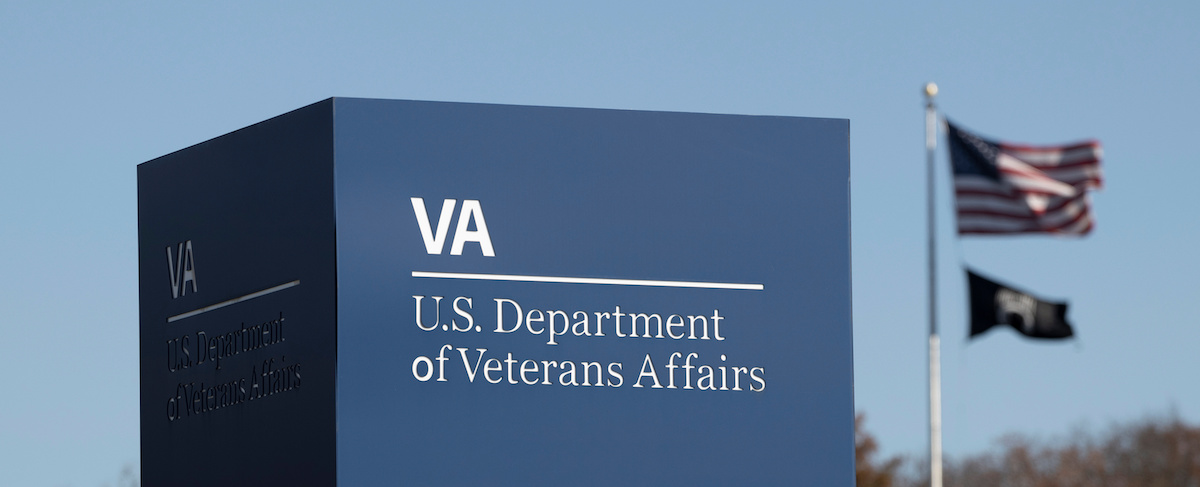
WASHINGTON, D.C. (This is Topeka) — The Department of Veterans Affairs has issued a sweeping resignation offer to its employees, a move that has ignited controversy and legal scrutiny. The program, outlined in what has been labeled the ‘Fork in the Road,’ addressed to all VA employees, including doctors and nurses, until February 6 to opt into a deferred resignation program. Those who accept the offer will continue receiving full pay and benefits until September 30 but will not be required to report to work.
This offer has been confirmed by the newly appointed Veterans Affairs Acting Secretary Todd Hunter that the VA will honor the administration’s offer for federal employees, [including doctors and nurses] to receive pay through September 30 if they submit a “deferred resignation” email by February 6.
The directive, which applies across the agency, has raised immediate concerns about its impact on veteran healthcare, particularly in already understaffed facilities. As VA hospitals grapple with chronic workforce shortages, the prospect of widespread resignations—especially among medical professionals—has left many questioning whether the administration has a plan to mitigate the fallout.
Now Habersham news partner This Is Topeka obtained the actual contract outlining the terms of this resignation offer to ALL VA employees, further confirming its sweeping implications.
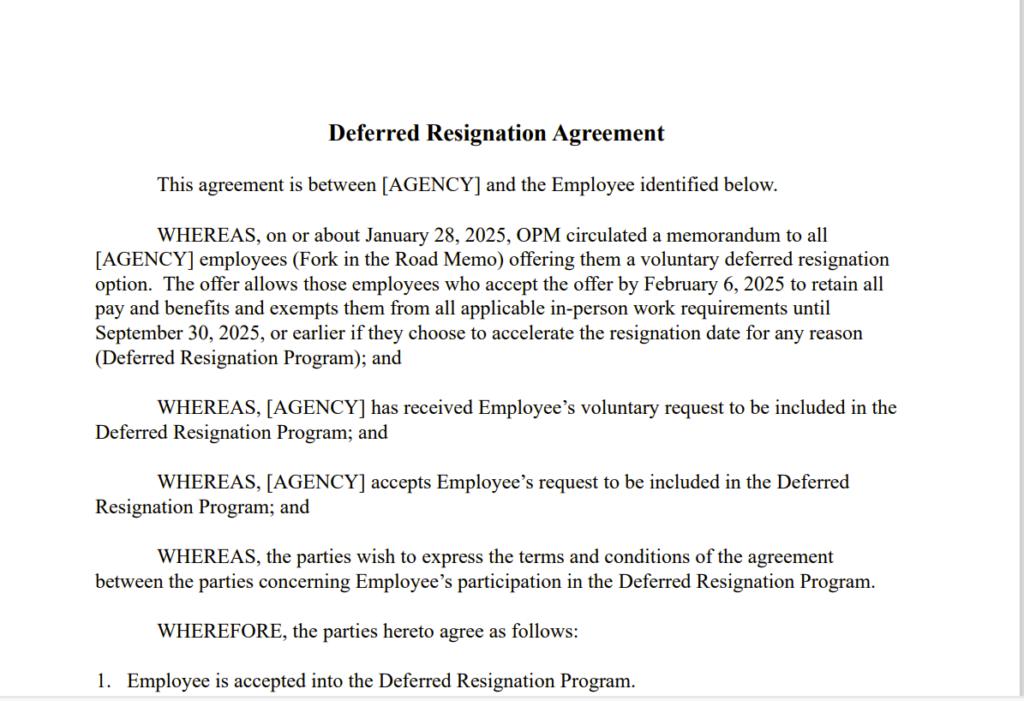
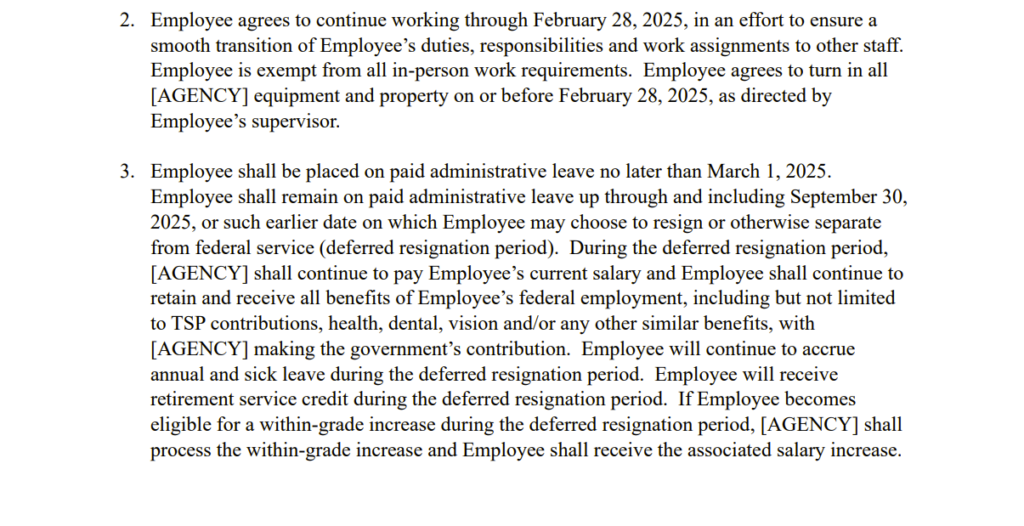
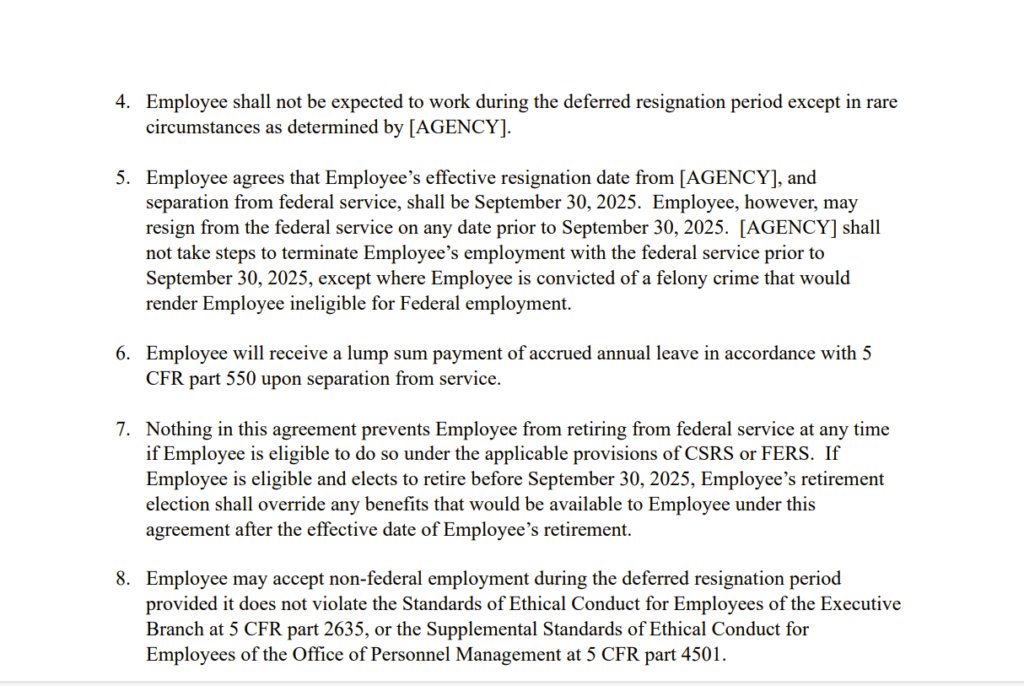
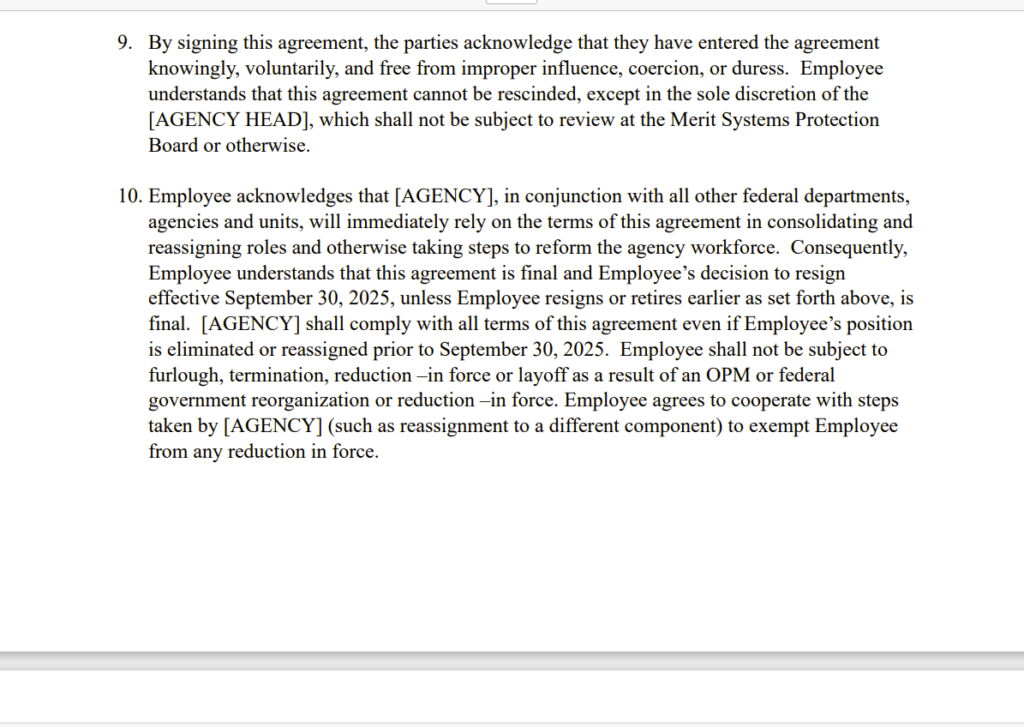
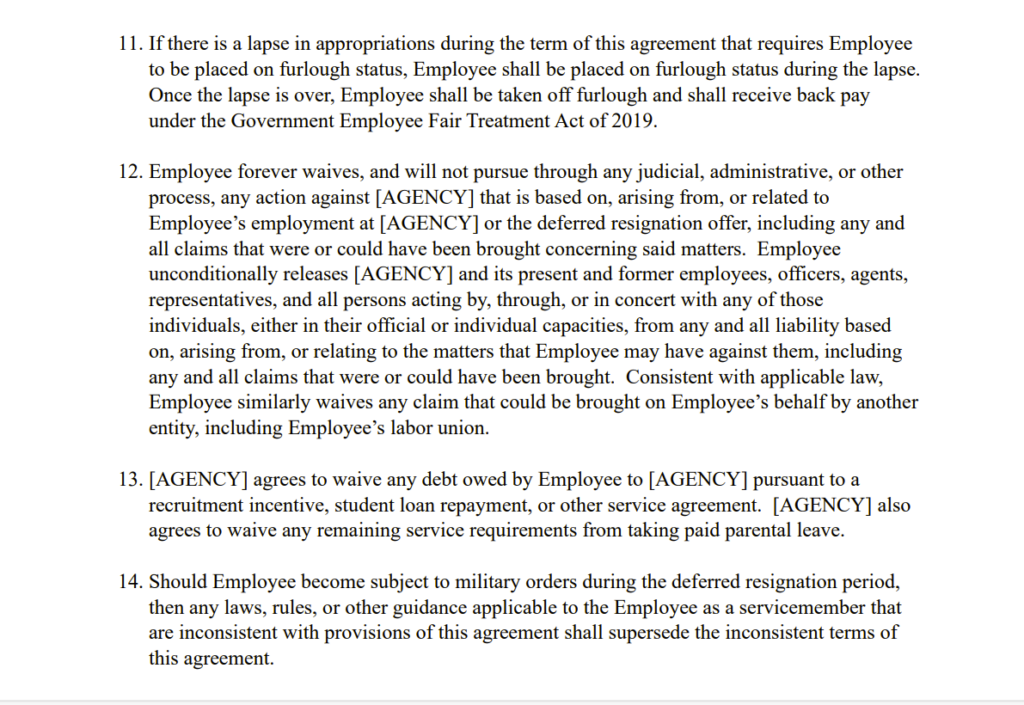
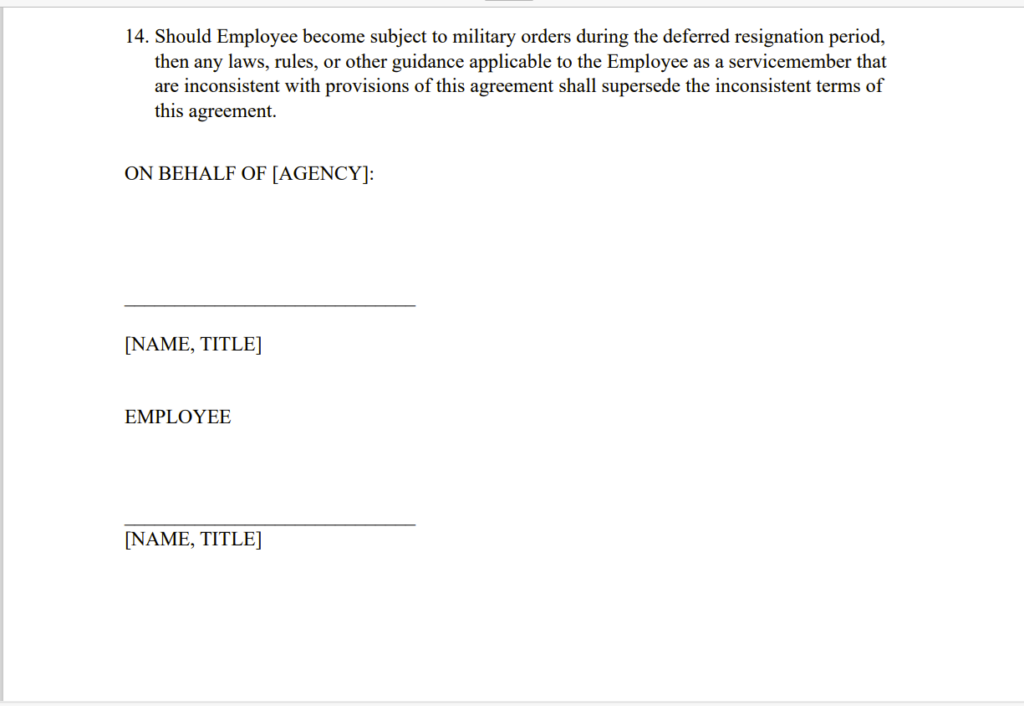
Legal and ethical challenges
A particularly contentious provision in the agreement, Clause #12, mandates that employees waive their rights to challenge the terms of their employment or resignation in court or through administrative processes. The language bars employees from bringing claims against the agency, including potential legal challenges related to labor rights or workplace protections. The contract obtained by This Is Topeka explicitly states that employees must unconditionally release the agency from any future liability.
Legal experts have questioned the enforceability of this measure, with one labor attorney describing it as “an overreach of executive authority.” Federal employment protections typically prevent blanket waivers of legal recourse, particularly in agreements that affect large swaths of the workforce.
Union response and broader implications
The American Federation of Government Employees (AFGE), the largest union representing federal workers, has strongly opposed the move. The union has already initiated legal action, arguing that the administration is attempting to sidestep long-standing civil service protections through coercive means. The offer, critics say, incentivizes employees to leave without ensuring continuity of services that millions of veterans rely on.
Meanwhile, VA hospitals across the country—many of which have struggled to maintain staffing levels—could see further disruptions. The agreement specifies that those who accept the offer will not be subject to layoffs, furloughs, or reductions in force, but it remains unclear how the agency will sustain operations if a significant portion of the workforce departs. This Is Topeka’s review of the contract further underscores these concerns, as it contains no explicit language addressing contingency plans for maintaining essential services or the mechanisms required to pay resigning workers.
A precarious future for VA services
With the deadline here, VA employees are weighing their options. For some, the offer represents a financial opportunity, granting months of pay without work obligations. For others, particularly medical professionals dedicated to patient care, the decision is far more complicated.
As legal challenges loom and union resistance intensifies, questions persist about the long-term implications of the administration’s strategy. With veteran healthcare hanging in the balance, policymakers and agency officials may soon face pressure to justify how this approach serves federal employees and the nation’s veterans.
This article appears on Now Habersham in partnership with This is Topeka






